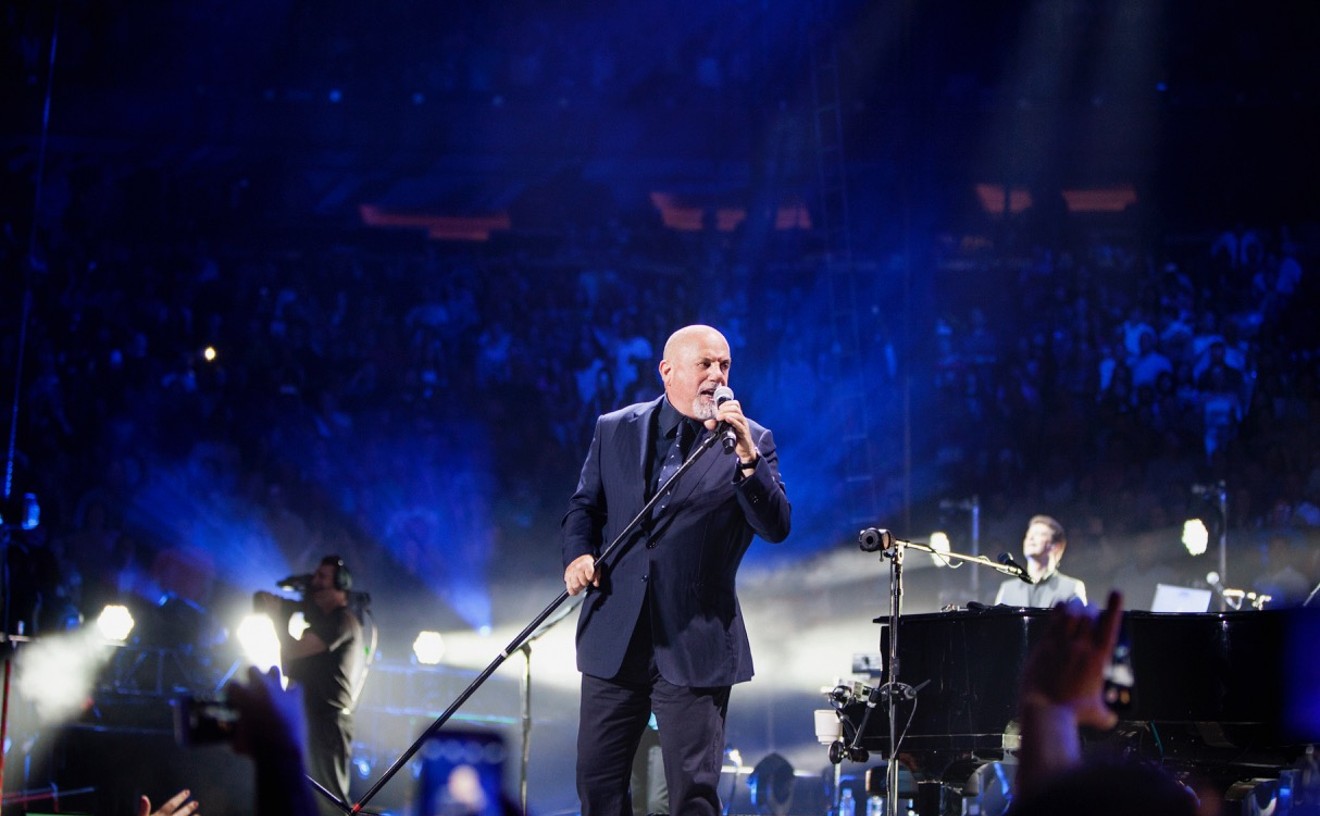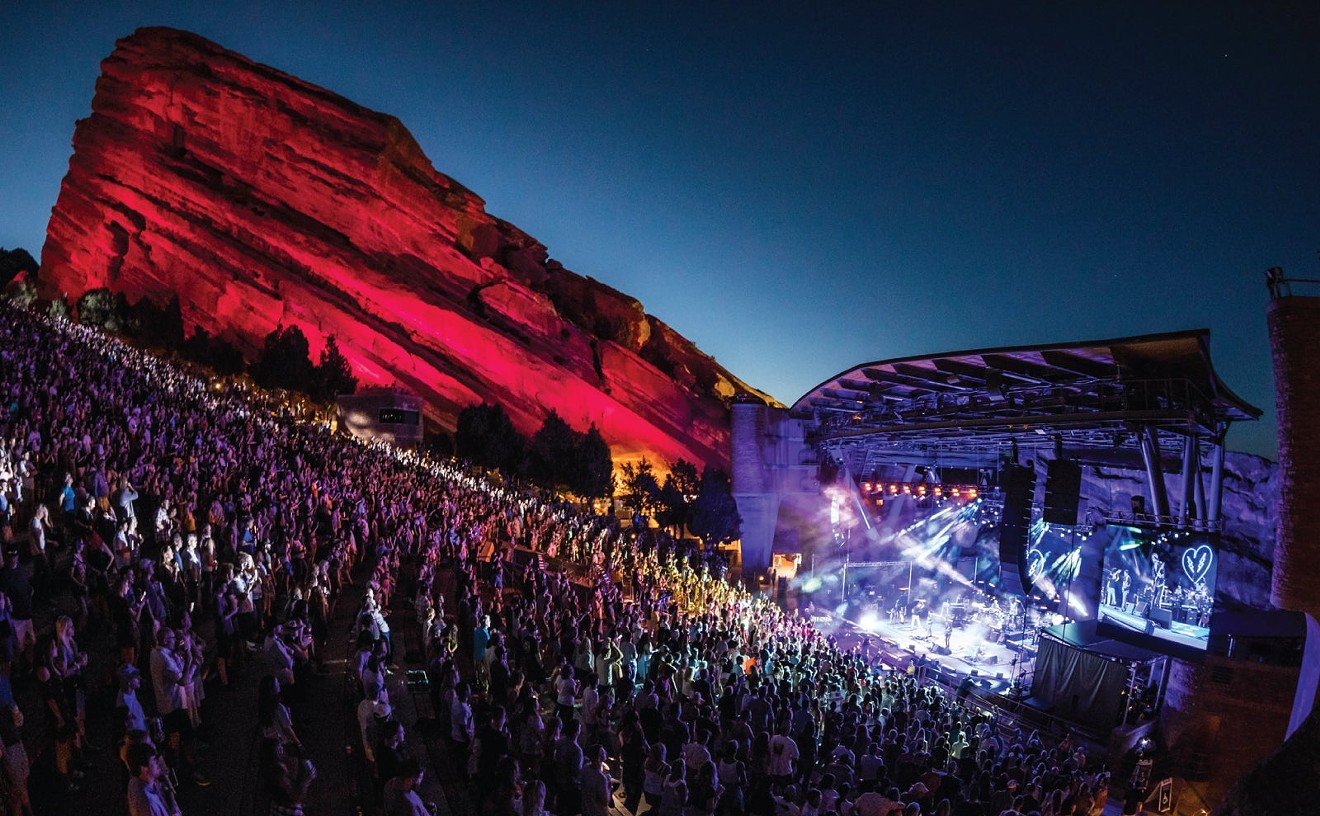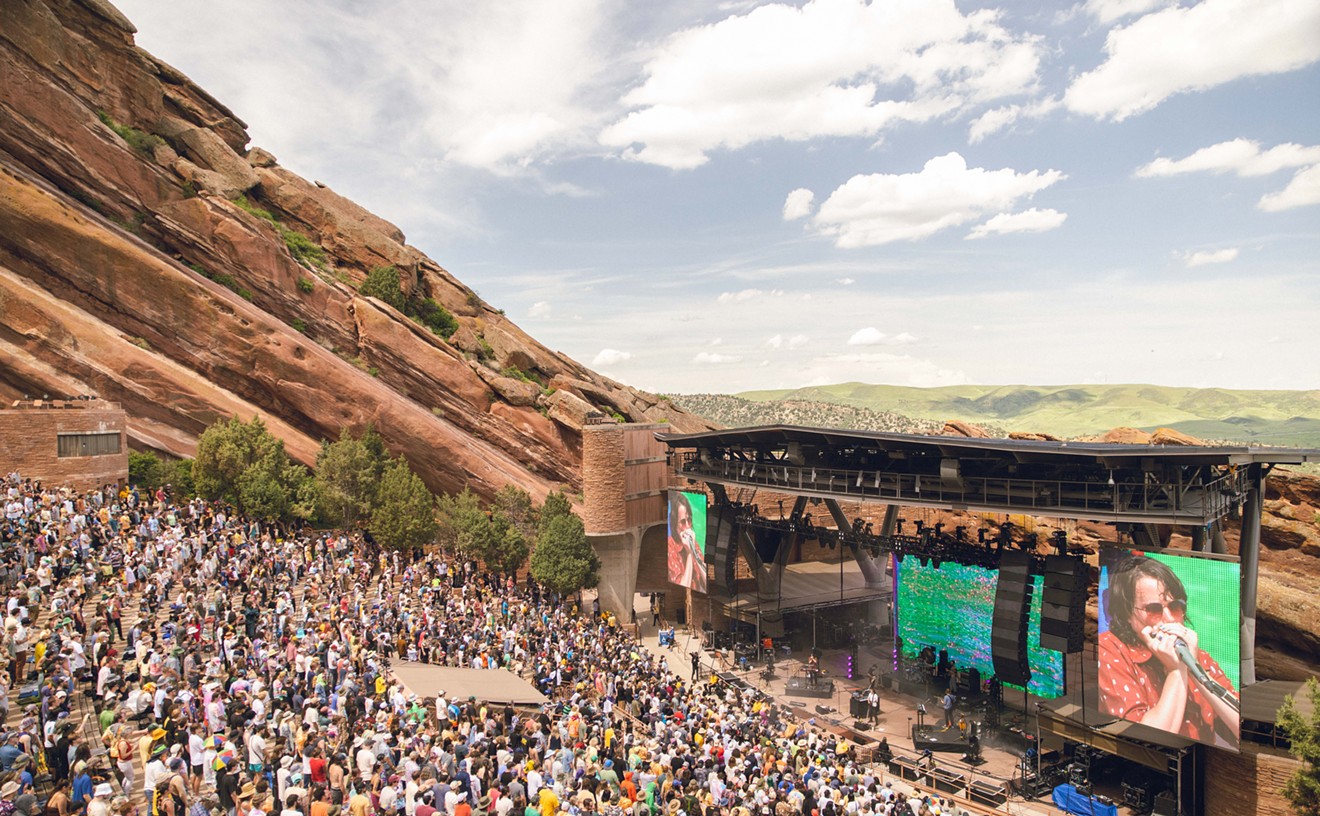These days, there are two versions of the English Beat: one in this country, led by Dave Wakeling, and another in the U.K., featuring Ranking Roger, the band's classic toaster. In advance of tonight's show with the Wakeling-led version of the English Beat at Summit Music Hall, we spoke with the gregarious and thoughtful frontman about his views on social issues and war and how Elvis Costello got him back into playing music.
Westword: When you started the English Beat in the late '70s, how did you come to be interested in that sort of music, and how do you see where it fit in with also being kind of a rebellious music?
Dave Wakeling: We tried to blend punk and reggae, and both of those are, to a certain point, the music of resistance and protest. After punk, we wanted to come up with something that you could still be in a protesting sort of mood but you didn't have to be angry all the time. It was hard work being punk, wasn't it? Being furious about so many things? It sort of occurred to us that to have to get that angry about stuff was kind of like using the tactics of the opposition -- the forces of hatred themselves.
We genuinely did think it could be the end of the world, and we wanted a last chance to dance. We wanted ska-pocalypse. We did. And we thought that, well, if you have a good dance, you never know what will happen, things might get better. And if the world is going to hell in a handbag, then we may as well dance in the streets. We thought we were on our way. It would appear I spent the last thirty years expecting the sky to fall on my head.
At first I heard reggae at football games. They used to play it on the terraces for the football fans, the skinheads, to keep them quiet. That was my very first introduction to it. Then I started hearing people like Max Romeo, who went a step forward with dirty reggae and ska, and a song called "Uptown Babies" just captured my imagination. It's a really pretty song, but you realize, if you listen, that he was singing about starving children: "Uptown babies don't cry/They don't know what hungry is like."
Pretty, pretty song. Although people always say reggae is so uplifting, it always sounds so happy, I think it's more than that. It does have a happy sense to it, but it has to do with survival. I think sometimes people had to listen to a reggae song instead of having dinner. So there's a nobility to it about the human spirit, and it lent itself well to what we were looking to, which was to try and combine that spirit of joy of life and resistance through oppression with our own urban background of punk and rock. We wanted the Velvet Underground with Toots and the Maytals jamming along. We wanted that urban angst, but we wanted it to be with a pretty backbeat.
You've long been a man of social conscience. What helped shape that in you as a young person, and what issues are of the greatest import to you today?
I suppose our parents were all still shell-shocked from the Second World War. No one talked about, it but you knew something was wrong. As you started to grow up and become a young teenager, you started to hear the stories about your uncles and why they were odd and what had happened. And that was disturbing.
Then I'd watch the black-and-white television news with my dad, and whether it was the Chicago Democratic convention or the Six Day War, it seemed stupid to me, as a twelve-year-old or whatever. I never understood, and I still don't, where was the real percentage in killing someone else's children? Where do you think that's going to get you in the long run? Because if killing worked, it would have worked by now. When you think about how many of other people's children that we've killed, this should be the most peaceful place in the fucking universe. If it worked.
So it horrified me as a child, and it continues to do so as an adult. It's like we never evolved or something. If we can't do better than that, then we don't deserve to live. Those things have bothered me, really, all the way through. It's a bit easy to tell the difference between people's comments or people's actions. Are they inspired by compassion and connection, or are they inspired by their own self-interest and profit?
And you can tell straight away -- usually by the time of the first or second words coming out of their mouth -- you can tell where someone's coming from, if you really want to know, which makes a lot of what we do such nonsense, because, you know, we're all liars. We're actually smarter than that.
Also, I think it had something to do with pain. I was a competition swimmer. I used to have to train until it hurt so bad that suddenly you would stop feeling anything at all and you felt like you could swim forever. It was called "training through the pain barrier," and it worked. It was enjoyable, but it was self-inflicted, and it made me think: It was one thing to agree to put yourself through pain, but it was really horrible if someone else did it to you instead. I think that was the start of my social inquiry, or my social conscience, or whatever. It had to do with all of those things, I suppose.
My early experiments with pain and my dad and all my other relatives' veiled references to World War II -- you started to realize it had shattered their souls, separated their souls from them. That they were searching to try and find their souls that they had to leave behind them because they had to get serious and get ready to kill other people's children.
And you can never do that casually. And you can never do that without it affecting you for every last single day of your life. It doesn't matter who gives you permission to do it. It doesn't matter. It makes no difference. You killed somebody else's nipper; you have to think about that until your final rest.
So tell me about this encounter you had with Elvis Costello and his -- dare I say -- admonishing you for abandoning your "post as a crooner."
[laughs] Well, you know, I'd always been such a big fan. Right before I started in the Beat, I was working on a construction site. I had a ritual every day: Before I got on my motorbike to go to the site, I'd play "Welcome to the Working Week" as loud as my record player would do it. Hopefully, next door would bang against the wall, and that would make it sound even better to me. So he was a hero.
I'd met him a couple of times. I'd been on a TV show, and he said that a line in one of my songs was the lyric of the year in '82 or '83 in a magazine. We'd become pretty...not close, but good, casual buddies. Then I started working at Greenpeace in the early '90s. They had a concert project, and I got involved in that. Elvis Costello was kind enough to have some Greenpeace characters on the tour with a table. And I mentioned in the office that I knew him, and some people asked if I could introduce them. So I said, "Yes," and straight after the show, me and about eighteen other Greenpeacers, half of them playing hacky-sack, went back stage to meet Mr. McManus.
So I said, "Here's my friends at Greenpeace who really want to meet you." And he said, "I could bang yours and Jerry Dammers' heads together." Everybody stopped breathing and said, "What?!" He said, "All this Greenpeace stuff, and this anti-Apartheid stuff, that's all well and good, but you know your place is on the stage, and you know that." All the people were laughing at me because "Elvis Costello told Dave, ha ha."
Two weeks later, a phone call came into the Greenpeace office from a guy I had not met yet, called Ralph Small, who does music for films, and he asked if I wanted to get together with Ranking Roger for a film called Threesome that's coming out. We got a list of songs, including "I'll Take You There," and it went to number one in the dance charts.
Me and Roger got a deal with Sony -- or Epic or whatever they called themselves that week -- and I was back on the stage just as Mr. Costello had told me to. It was odd. It all happened in a two-week period. I suppose he was right, and thank him for it. And how odd that it came to fruition as quickly as that. And I didn't actually have to do anything; it happened for me.
Elvis had a word, I presume. "I've just spoken to that Wakeling character and it seems like he should get back on the stage. Hook him up with something for film or something like that. Nothing too challenging, and I'd like it to go number one in the dance charts." And "Right on, Mr. McManus, we'll get straight on it." It's fantastic when you know people.
Follow Backbeat on Facebook and on Twitter at @Westword_Music.











